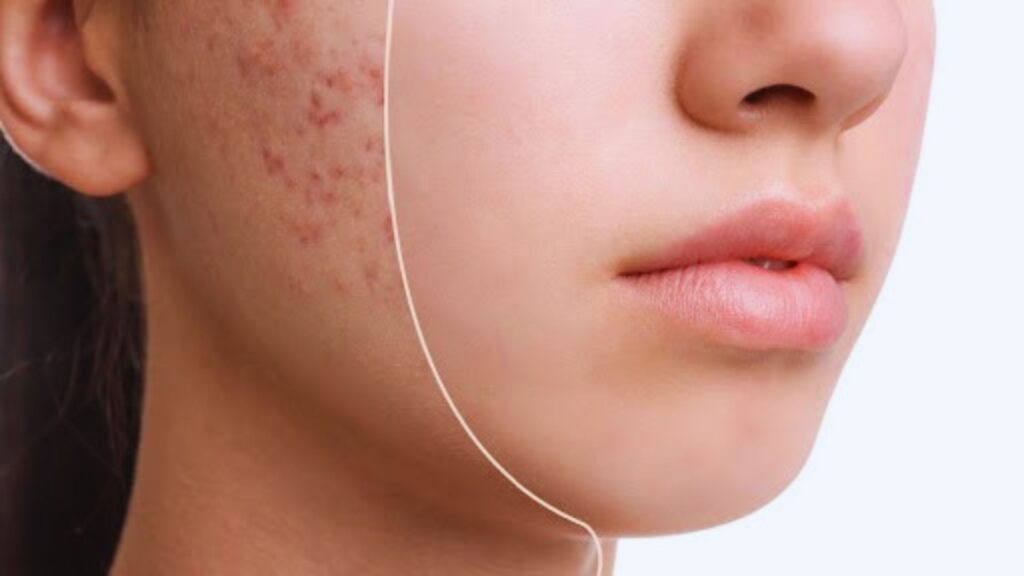
Pimples, also known as acne, are a common skin concern that can affect people of all ages. Whether it’s occasional breakouts or persistent acne, dealing with pimples can be frustrating. The good news is that with the right approach, you can recover from pimples and maintain clear, healthy skin. In this article, we’ll explore 9 effective tips to help you clear up pimples and keep your skin looking fresh and radiant.
1. Develop a Consistent Skincare Routine
A well-rounded skincare routine is essential in both recovering from pimples and preventing future breakouts. Consistency is key, so it’s important to establish a daily routine and stick to it.
Cleanse your skin: Use a gentle, non-comedogenic cleanser twice a day to remove dirt, excess oil, and impurities. Make sure to choose a cleanser suitable for your skin type—whether oily, dry, or combination.
Tone your skin: After cleansing, apply a toner to balance your skin’s pH and tighten pores. Look for toners containing salicylic acid or witch hazel, which can help reduce acne-causing bacteria.
Moisturise regularly: Even if you have oily skin, don’t skip moisturising. Use a lightweight, oil-free moisturiser to keep your skin hydrated without adding extra oil. Hydration is crucial to maintaining the skin’s natural barrier.
Exfoliate occasionally: Gently exfoliate 1-2 times a week to remove dead skin cells that can clog pores and cause pimples. Avoid harsh scrubs, which can irritate the skin and worsen acne.
Spot treatment: Apply acne treatment products with benzoyl peroxide, salicylic acid, or sulfur directly to active pimples to speed up healing.
2. Incorporate Acne-Fighting Ingredients
Certain skincare ingredients are proven to be highly effective at treating pimples and preventing future breakouts. Including these ingredients in your routine can significantly improve your skin’s appearance.
Salicylic acid: This beta-hydroxy acid (BHA) penetrates deep into the pores, helping to clear out oil and dead skin cells. It is especially effective for blackheads, whiteheads, and general acne.
Benzoyl peroxide: Known for its antibacterial properties, benzoyl peroxide helps kill acne-causing bacteria and reduce inflammation. It is particularly useful for cystic acne and large, painful pimples.
Retinoids: Retinoids are derived from Vitamin A and help to speed up cell turnover, preventing clogged pores and reducing the appearance of acne scars. They are available in both over-the-counter and prescription formulas.
Tea tree oil: A natural antibacterial agent, tea tree oil can help reduce acne and inflammation without the harsh effects of stronger chemical treatments. It is especially beneficial for sensitive skin.
Niacinamide: This anti-inflammatory ingredient helps calm irritated skin, reduce redness, and even out skin tone. It’s great for reducing post-acne marks and preventing future breakouts.
3. Avoid Touching Your Face
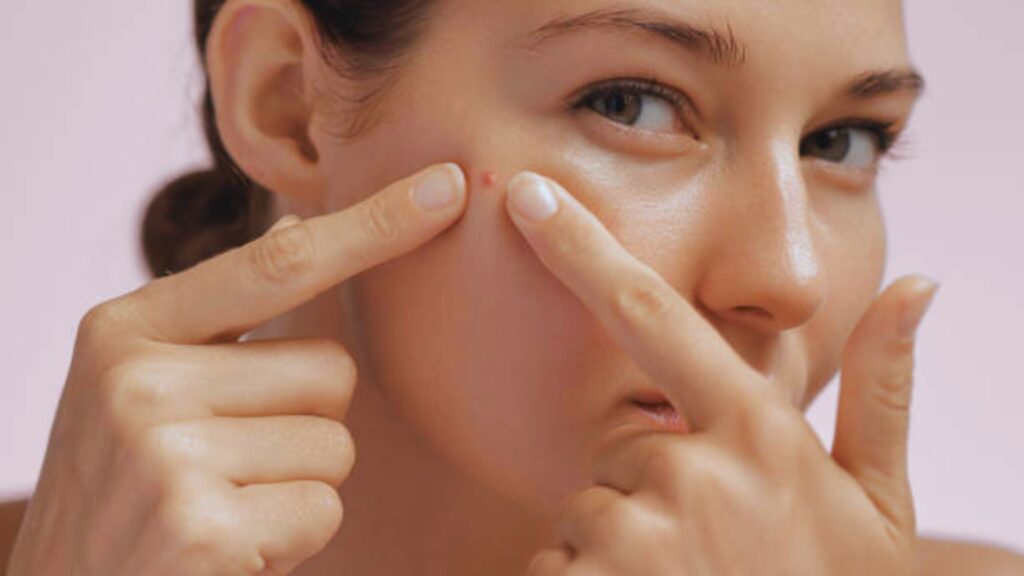
One of the easiest ways to prevent pimples is by avoiding touching your face. Your hands carry bacteria, oil, and dirt, which can transfer to your face and clog pores. Additionally, picking at pimples can introduce bacteria into the skin, leading to more breakouts and scarring.
Make it a habit to keep your hands away from your face, and always wash your hands before applying skincare products or makeup.
4. Choose Non-Comedogenic Makeup
Makeup can often contribute to pimples, especially if it contains heavy oils or ingredients that clog the pores. To avoid exacerbating your acne, always choose non-comedogenic makeup products, which are specifically designed not to clog pores.
Opt for foundation, concealer, and powder that are oil-free and designed for acne-prone skin. Remember to remove all makeup thoroughly at the end of the day with a gentle makeup remover or micellar water.
5. Manage Your Diet
What you eat can have a significant impact on the health of your skin. While there’s no single food that directly causes pimples, certain dietary habits can contribute to increased inflammation and breakouts.
Limit dairy and high-glycemic foods: Studies suggest that consuming dairy products and foods high in sugar or refined carbohydrates (such as white bread and chips) may trigger acne flare-ups in some people. Try reducing your intake of these foods and replacing them with healthier alternatives.
Eat anti-inflammatory foods: Incorporate foods rich in antioxidants and anti-inflammatory properties, such as leafy greens, berries, and nuts. Omega-3 fatty acids, found in fish like salmon, walnuts, and chia seeds, can help reduce inflammation and support healthy skin.
Stay hydrated: Drinking plenty of water is essential for keeping your skin hydrated and flush out toxins. Aim for at least 8 glasses of water a day to support your skin’s natural healing process.
6. Protect Your Skin from the Sun
While sunlight may temporarily dry out pimples, overexposure can worsen acne, increase inflammation, and cause lasting scars. To protect your skin, use a non-comedogenic sunscreen with at least SPF 30 daily, even on cloudy days, to prevent UV damage and future breakouts.
7. Get Enough Sleep
Adequate sleep is vital for skin health. During sleep, your body goes into repair mode, helping to heal acne and regenerate new skin cells. Poor sleep can increase stress levels, which in turn can trigger acne flare-ups.
Aim for 7-9 hours of quality sleep each night to allow your body and skin to repair and rejuvenate. If you’re not getting enough rest, consider adopting a bedtime routine to help you wind down and ensure a good night’s sleep.
8. Reduce Stress Levels
Stress triggers the production of cortisol, which increases oil production and can lead to breakouts. To manage stress, try yoga, meditation, or deep breathing exercises. Regular physical activity, like walking or swimming, can also help reduce stress and improve your skin by boosting circulation.
9. Consider Professional Treatments
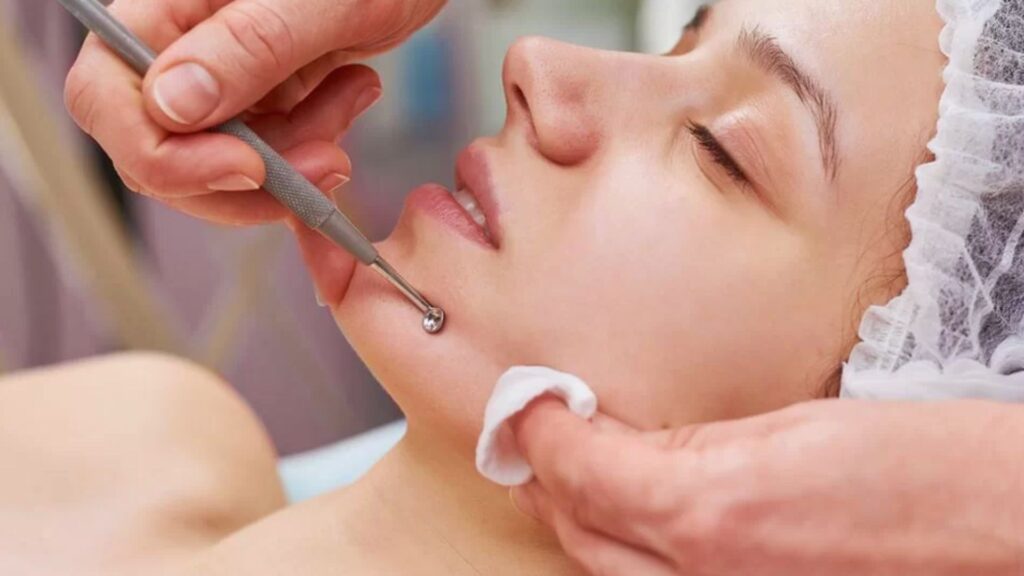
If your pimples persist despite your efforts, it might be time to seek professional help. A dermatologist can offer tailored treatments to clear your skin, including:
Prescription medications: These may include topical retinoids, antibiotics, or oral contraceptives (for women), which can help control hormonal acne.
Chemical peels: These involve applying a chemical solution to your skin to exfoliate and promote cell turnover, helping to clear up acne and reduce scarring.
Laser treatments: Certain types of laser therapy can target acne-causing bacteria and reduce inflammation.
Conclusion
Recovering from pimples and maintaining healthy skin requires patience, dedication, and the right combination of skincare, lifestyle changes, and sometimes professional help. By following these 9 effective tips, you can recover from pimples and prevent future breakouts.
Remember, everyone’s skin is unique, so it may take time to find the best solutions. With persistence and the right approach, you’ll achieve clear, glowing skin.


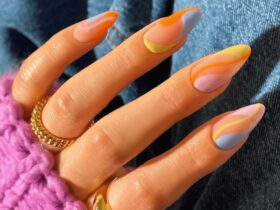


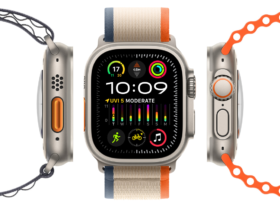











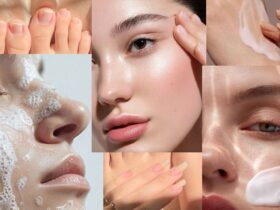
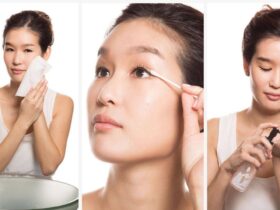


Leave a Reply